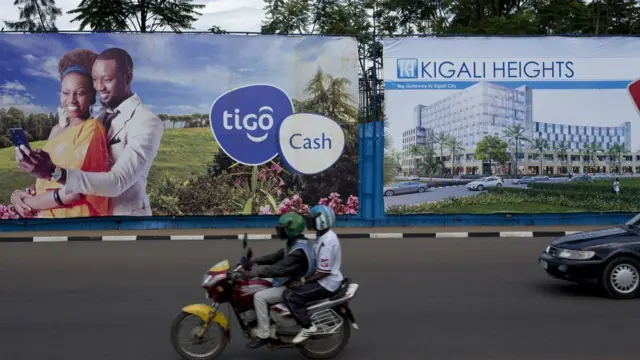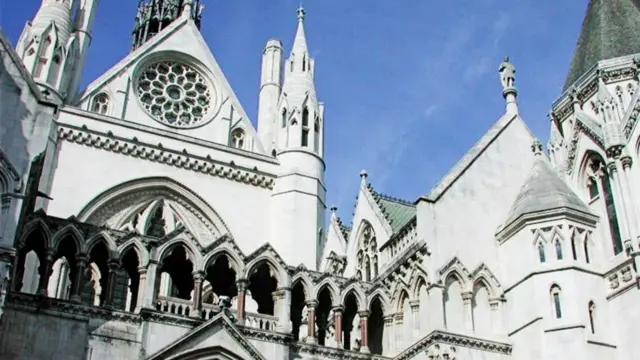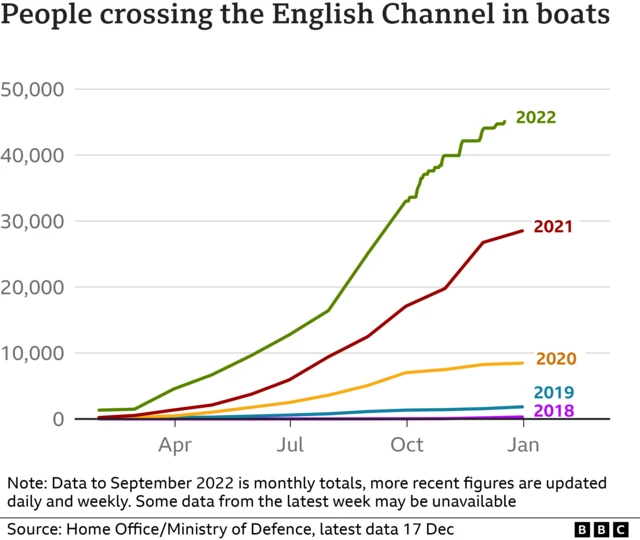Eight individual cases must be reconsidered - High Courtpublished at 10:43 GMT 19 December 2022
It's mixed news for the government. The High Court has also ruled that the cases of eight individual asylum seekers - who were due to be sent to Rwanda earlier this year - will have to be reconsidered.
That's despite the court deciding that the government's Rwanda plan itself is legal.



